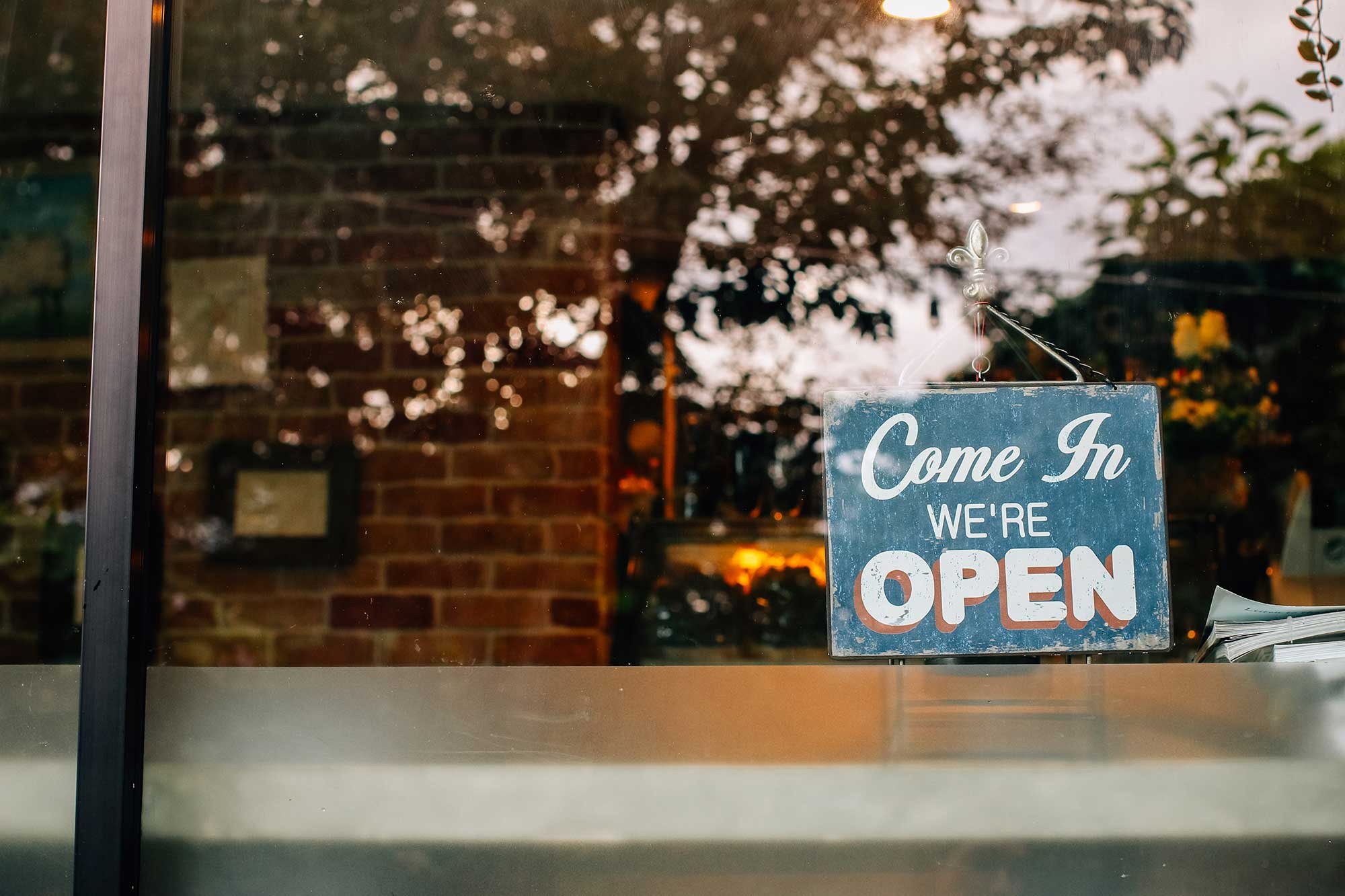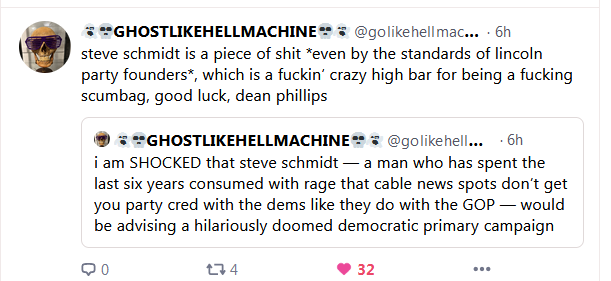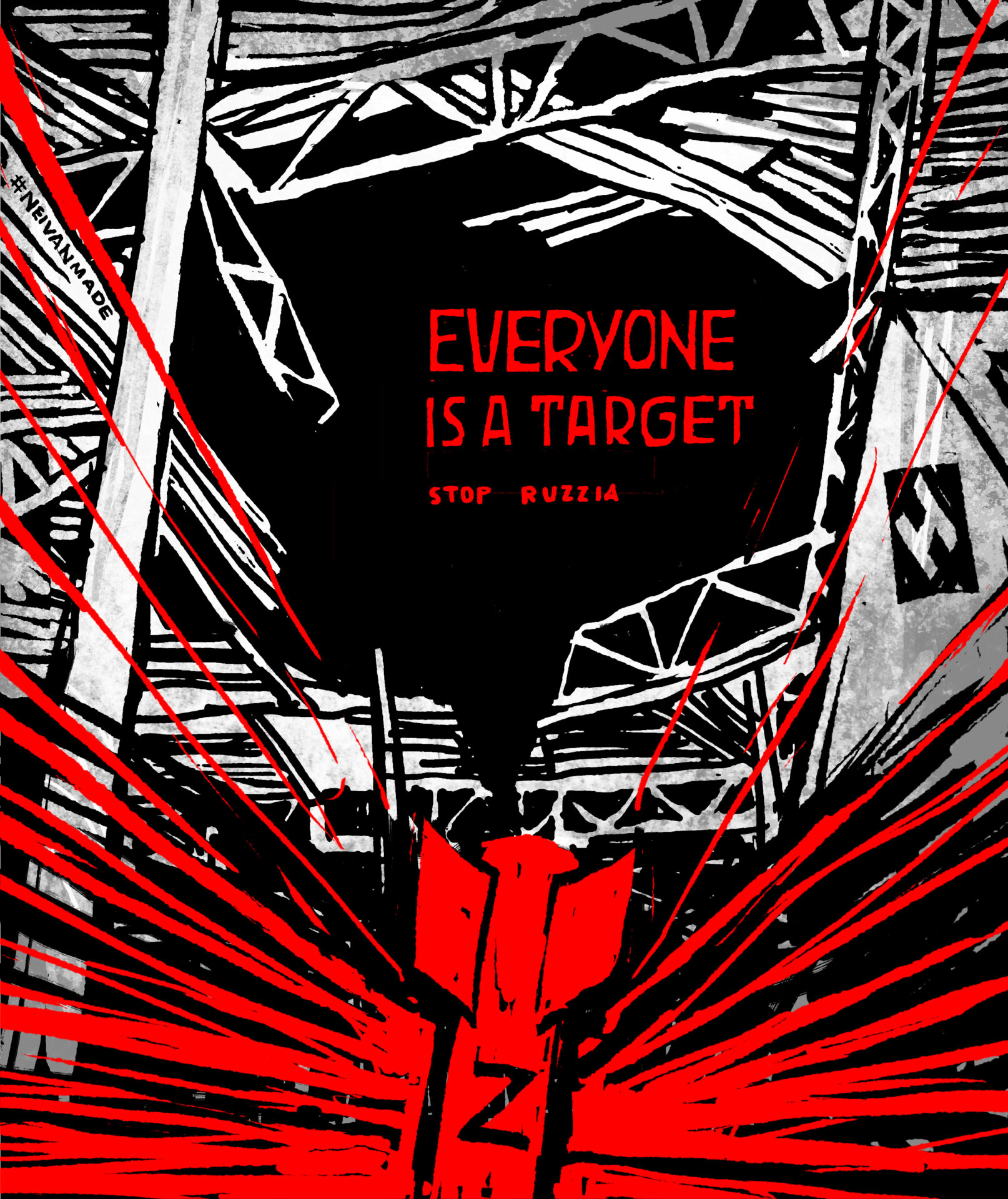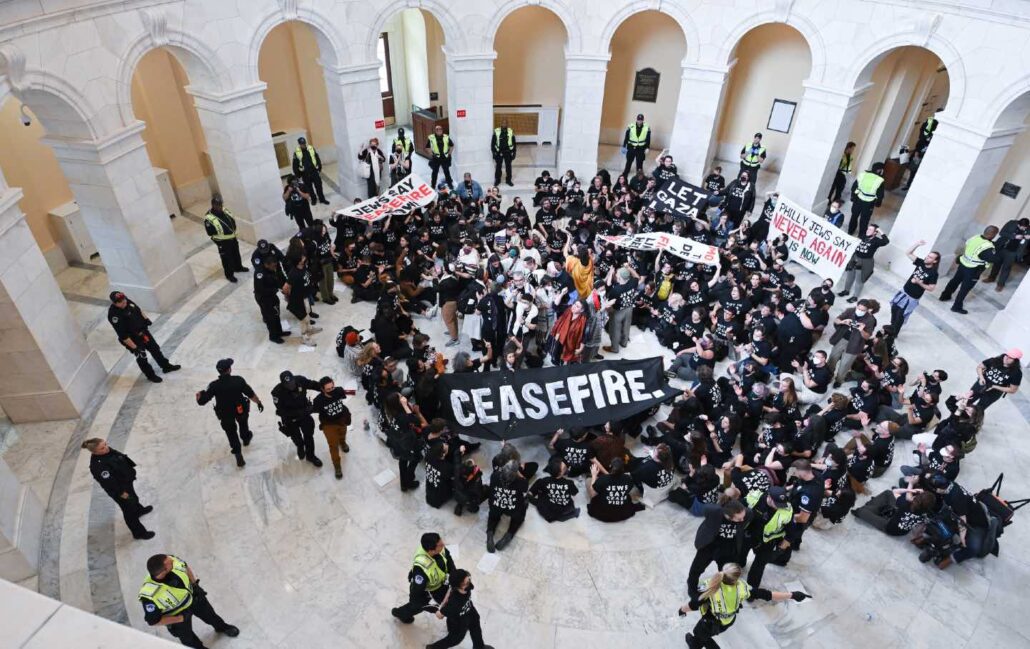In Judaism, at the Passover, part of the Seder, the ritual meal, includes recounting the tale of the four sons. Among the four is the simple son. The language here is all sorts of mucked up as it went through multiple languages, most likely Aramaic to Greek and/or Latin to then other European languages, as well as several Hebreo-composite languages (Ladino, Yiddish, Judeo-Arabic, Romaness) and now, for our purposes, into English. In short the simple son is not developmentally disabled, rather he – look this part of the ritual is over a thousand year’s old, of course it’s going to be a he – wants to learn something, but he does not have enough context to formulate his question in the most basic manner. Yesterday, in a comment, this question was asked:
it’s all so complicated. I just want Balloon Juice to be a place where we can think through the situation and talk through the situation, learn something (at least for people like me), and have a safe place to do all of that.
This is what is meant in the ritual formulation of the simple son. Wanting to learn, not quite sure what to ask.
Fortunately for you all we have two front pagers who are Jewish. One with a penchant for writing large tomes, Dutch master painting, and roasted chicken and the other being me. In this case the penchant for writing large tomes, the brushwork of the Dutch masters, nor the best techniques for roasting a chicken are going to be much use. So you’re stuck with me.
I’ve now read Dave Zirin’s column. I think the intention is noble and the emotion is mostly right, but Zirin also fails to properly contextualize what is going on for non-Jewish Americans. As a result, those outside of the community don’t have the context to really make sense of what he has written. The context is that Jewish Americans support for and relationship with Israel has been going through a prolonged set of generational changes. Usually those start among Jewish Americans that are at least a decade younger than me. I’m a bit older than Cole. The short version is that unlike our parents and grandparents we are not reflexively supportive of Israel even if the attempts were made to raise us to be.
My grandparents helped coordinate logistics and supply for the Haganah via their living room in Denver. My parents were, and in the case of my mother still is, strong supporters of Israel. I remember walking in the house after driving up from Miami where I was doing my masters in comparative religion for the weekend and my dad was sitting on one arm of the sofa crying. He looked up, basically made an anguished sound, and gestured wildly at the TV, which was tuned to CNN and was replaying the breaking news over and over that Rabin had been assassinated. I was sent to Jewish day school, where much of even the secular curriculum was oriented not just around Judaism, but also around Israel. Then, of course, I went to a Jesuit high school and a Methodist university.
What’s missing from Zirin’s piece is the context that what had once been a monolithic support for Israel among Jewish Americans ceased to be over the past twenty to thirty years. Some of that was the result of those of us growing up in my generational cohort and the ones after mine not experiencing much, if any, antisemitism. And, as a result, unlike our parents and grandparents, we didn’t feel Israel needed to exist so we had a safe place to escape to. The US was that safe place. Certainly far more than a state constantly under siege. Some of it was watching as Likud’s prime ministers – specifically Begin, Shamir, and Netanyahu – manipulated American politics for their own advantages. And in the case of Bibi it was for his own personal advantage, while for Begin and Shamir it was their advantage on behalf of Israel. Some of it was also recognizing that what we were raised to understand about Judaism as a theology and doctrine was incompatible with how Israel, a state with a majority of Jewish citizens and led by Jews, was treating the Palestinians. As well as other Jewish and non-Jewish Israelis in some cases. A great deal of the attitudinal changes are a combination of all of these.
When you see Jewish groups leading competing demonstrations what you’re seeing is this conflict within the community. Different parts of the Jewish American communities are focusing on different things. Different parts of our theology, our doctrine, our cultural history, our experiences as Americans. This is why some are demonstrating whole hearted support for Israel in the current crisis while others are demanding an immediate ceasefire as Israel’s response should not be justified by Bibi, as he so often does, as necessary to protect Jews everywhere. Hence the “Not in our name!” chants, posters, and t-shirts.
And that’s the context you all need to unpack what Zirin wrote, but which he did not provide. As to whether Balloon Juice, or any other place, is the right place, let alone a safe place to think through and talk through the situation is something I cannot answer. At one level, this is an internal to Judaism issue. We haven’t thought or talked through it as a community, though now we’re screaming at each other about it in public, and we’d appreciate it if those of you outside looking in leave us be because our own history tells us you’ll just make things worse. Thanks for the best wishes, go find a thread about underwater macrame post card music writing in popular culture while watching the ball game or something and leave us out of it.
That’s obviously unrealistic. Everyone wants to talk about what’s going on, make sense of it. From what Hamas actually did, to how it could happen, to what Israel is going to do versus what Israel is going to do. What does this mean for Jews or Arabs or Muslims? What is the US going to do? Etc, etc, etc. There’s no hiding here, but at least I can provide some context.
The reality here is that the two state solution is dead and has been since at least 2013. With the exception of the brief Bennet-Lapid unity government, Israel has been governed by Bibi led coalitions for around fifteen years. Beginning in early 2014, no one in those coalitions – and the 2014 one was nowhere near as extreme as the current one is – has supported a two state solution. In fact they, including Bibi, have opposed the idea. Similarly, the leadership of the Palestinian Authority had basically given up on the idea by 2014 as well. In the latter’s case they believe that demographic reality will eventually solve the problem for them if there was only a one state solution. Hamas, PIJ, and the other extremist groups have never supported the idea. The problem, of course, is that the US policy is to seek a two state solution. Unfortunately, policy cannot ask of strategy that which policy cannot or will not provide: achievable objectives. What we need is a strategy to either move the Israelis and the Palestinians back into willingness to attempt a two state solution or we need a strategy to achieve a one state solution that does not make things worse than the status quo. We have none of those things now. We had none of them in 2014. And we definitely had none of them when Jared was making things worse.
I would appreciate it if just this once that people don’t argue this point with me in the comments. I’m the person who wrote the strategic and policy assessment on this topic in 2014 for my boss the Commanding General of US Army Europe, his boss the Commanding General of EUCOM/the Supreme Allied Commander Europe (who assigned it as the read of the week to his entire command), the Special Envoy for Middle East Peace, and through those three the Secretary of Defense and Secretary of State. it included a robust discussion of needing either a strategy to get the Israelis and Palestinians back to a two state track or develop new policy and strategy for a just, equitable one state solution. As an FYI: I also wrote the historic – as in it recounts the history of the Israeli-Palestinian conflict – introduction for the report and assessment that was produced by US Army Europe for the Departments of Defense and State in support of the 2014 peace process.
No matter what happens as the Israel-Hamas war unfolds, it is not going to get us to a two state solution. Because right now no one on either side wants one.
As for a ceasefire or armistice, calling for one is fine as long as one is realistic and recognizes that it isn’t going to happen as a result of external pressure. The fact that a bare majority of Israelis now want a strategic pause in operations to increase the chances to get the hostages out may lead to that happening, but I wouldn’t put money on it. The only way to prevent what is coming is for the US to assemble an international coalition that includes Arab and Muslim states, put boots on the ground in Gaza, and then both rescue the hostages while dismantling Hamas and bringing its leaders and fighters to justice. NOT GONNA HAPPEN!!!!
Like everyone else, you’ll find Jewish Americans on different sides of every social, political, economic, and religious issue regarding both domestic and international politics. The demonstrations you’re seeing now, that Zirin wrote about, that you all tried to deal with yesterday though you didn’t have the context, is not new. It is just now very visible because of the current Israel-Hamas war. It is, simply, the result of intergenerational changes among Jewish Americans. Changes that have been underway for several decades, but are now very visible.
One final point: some of the “not in my name” protests are enlightened self interest. They are attempts by some Jewish Americans to make it clear to everyone that Jewish does not equal Israel and that Judaism does not equal Israel. Because the fear, and it is a real one, is that this truth is going to continue to be erased. And as it is erased antisemitism and attacks on Jews in the US will increase even more than they have over the past eight years. We are already seeing neo-NAZIs and white supremacists infiltrating the pro-Palestinian activities that have developed over the past three weeks with the intent to turn them fully into antisemitic activities. Not because the neo-NAZIs like Arabs or Muslims, they don’t, but because they think they can use them to get at their preferred target: Jews. We’ve also seen what we so often deride here as the dirtbag left demonstrate that it is not so much pro-Palestinian as it is antisemitic. Jewish Americans were already far more scared than they’d previously been before Hamas attacked Israel on 7 OCT. Now that they’ve seen how non-Jewish Americans have responded, they’re even more scared. And unlike our parents and grandparents, we know that Israel is not a safe place to seek refuge should the worst come to pass here. Scared and feeling trapped is not a good combination. It is not conducive to rational thought or sound decision making.
In my case, regardless of my views regarding Israel, I raised my hand and swore the oath. And while I no longer have any role or serve any purpose in American national security, I have not been released from that oath. Regardless of what happens I will remain what I’ve always been: an American, whose religion is Judaism. I cannot go to Israel because I will not break my oath. Even if it would be the only way to save my life.
Hamas’s attack has been far, far, far more successful than it ever expected. Unfortunately, when it is all said and done, no one is going to win this war. The only question is how far does the collateral damage actually spread.
Next time just ask for the context. It will save us all a lot of discomfort.
Thus endeth the lesson.
I’m going to watch rugby.
Open thread.
ETA at 10:45 PM: I made a slight adjustment in the paragraph that starts with “That’s obviously unrealistic” in order to make the post more coherent.
Yesterday the Simple Child Asked & Today Begins the LessonPost + Comments (141)





